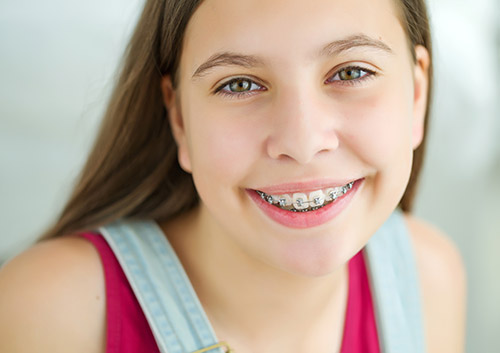Interproximal Cavities: The Inside Story
May 24th, 2023

Time to brush! So, you make sure you gently brush the plaque off the outside surfaces of your teeth. You want to present a gleaming smile to the world, after all. And you make sure to brush the inside surfaces as well, because who wants to feel a fuzzy patch of plaque every time their tongue hits their teeth? And, naturally, you remember to clean the tops of your molars, because those crevices make them more cavity-prone than any other surface.
Done? Not quite!
You might be surprised to learn that no matter how well you’ve brushed all the visible surfaces of your teeth, you’ve left quite a bit of enamel untouched—the adjoining, or touching, surfaces of the teeth that sit next to each other.
You’ve probably noticed that your bristles can’t . . . quite . . . reach all the enamel between your teeth (especially between your molars!) when you’re brushing. This means that food particles and plaque have an easier time sticking around. And when the bacteria in plaque are left undisturbed, especially with a banquet of food particles available, they produce acids which gradually eat away at the enamel covering our teeth, creating a cavity.
Here’s where we work in some specific dental vocabulary. “Interproximal” means between the adjoining, or touching, surfaces of the teeth. And an interproximal cavity is a cavity that develops on one of those side surfaces of your teeth.
- Preventing Interproximal Cavities
Fortunately, prevention is about as basic as it can be—brushing and flossing effectively. Dentists recommend brushing for two minutes at least twice a day and flossing once each day. While most of us are good about keeping up with brushing, sometimes that daily flossing is more a goal than a reality.
But it’s flossing which really does the trick when it comes to interproximal cleaning. If you floss correctly, food particles and plaque are removed from between the teeth and around the gum line—places where bristles just can’t reach.
When you wear braces, though, flossing isn’t quite so basic. Getting that floss just where it needs to be in between brackets and wires and in between teeth can be a challenge!
The good news is there are many products designed just to make flossing easier while you’re in orthodontic treatment:
- Floss threaders are flexible hoops that help you thread floss behind your wires easily.
- Precut floss strands use a stiff tip at one end for threading floss through wires.
- Interproximal brushes are tiny, cone-shaped brushes which can fit between your teeth and braces for precise cleaning.
- Water flossers eliminate floss altogether, using a pulsing stream of water to clean between and around teeth and braces.
During your next visit to our Halifax office, Dr. Paul Bourque, Dr. Kathy Russell, Dr. Brien Stackhouse, and Dr. Magda Barnard can give you tips on how to use any of these tools effectively for cleaner teeth and cleaner braces.
Preventing cavities on the exterior surfaces of your teeth is probably pretty much automatic by now, but don’t forget the potential for stealth decay! If we find signs of erosion on the sides of your teeth, or if your hygienist lets you know that you’ve got a lot of interproximal plaque buildup, work with your dental team to make sure “interproximal cavity” doesn’t become a working part of your dental vocabulary.












